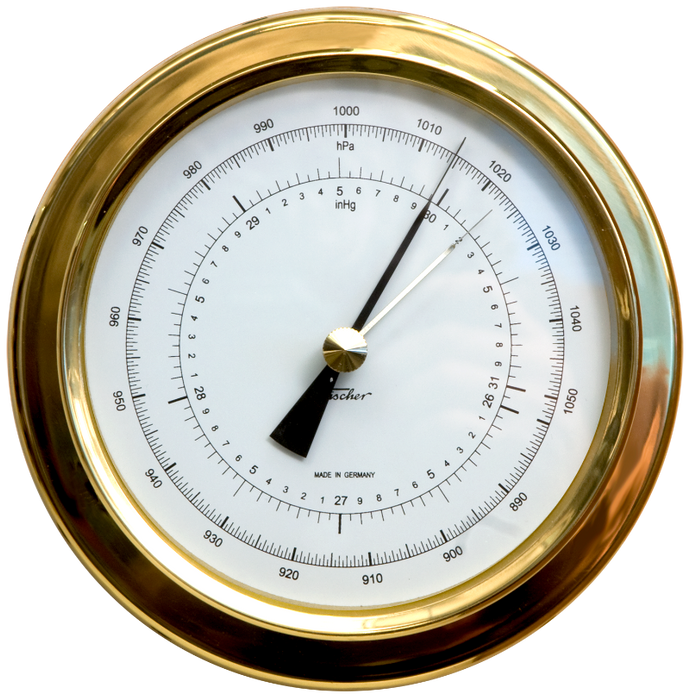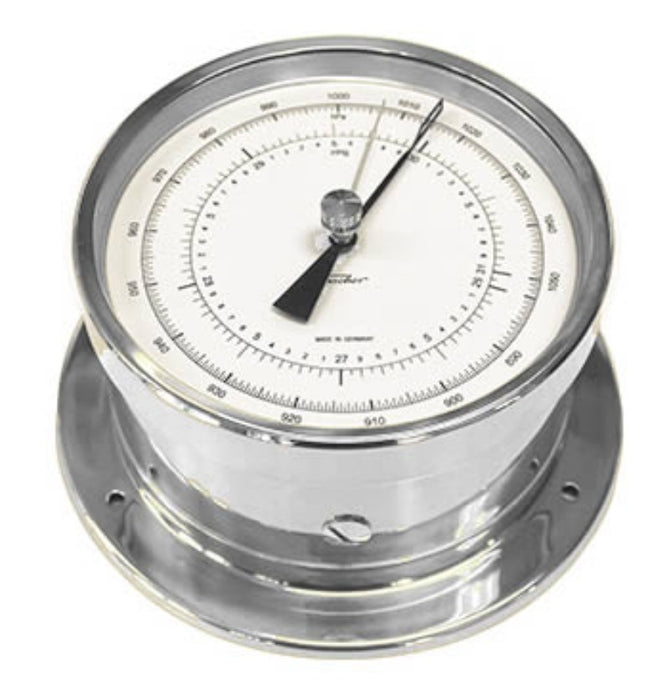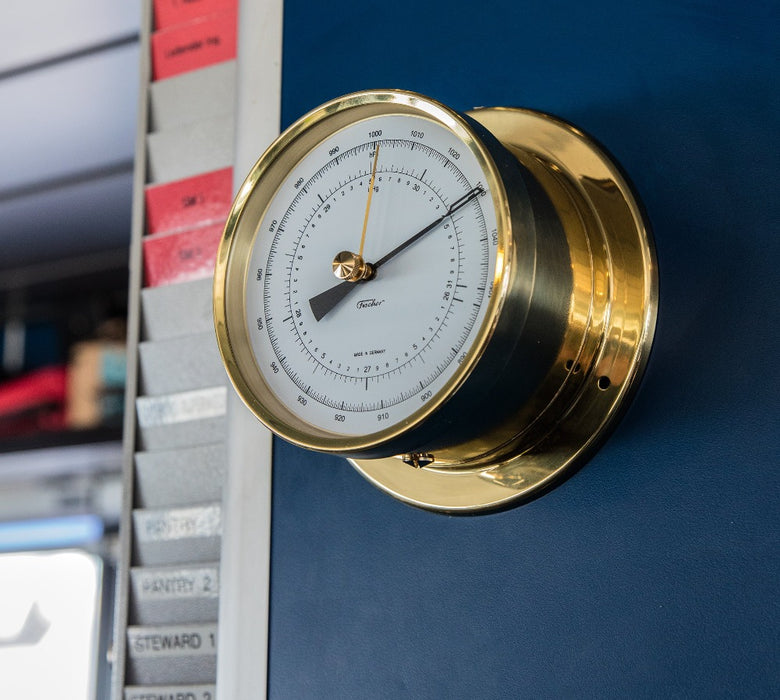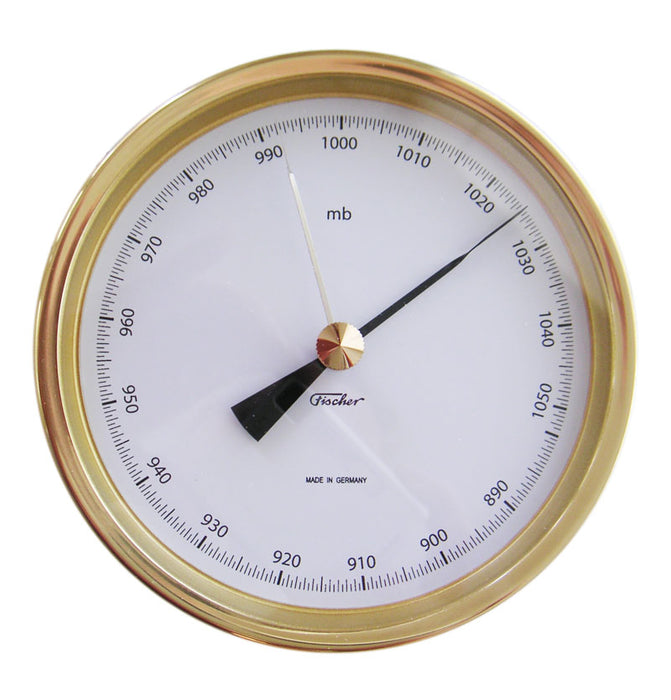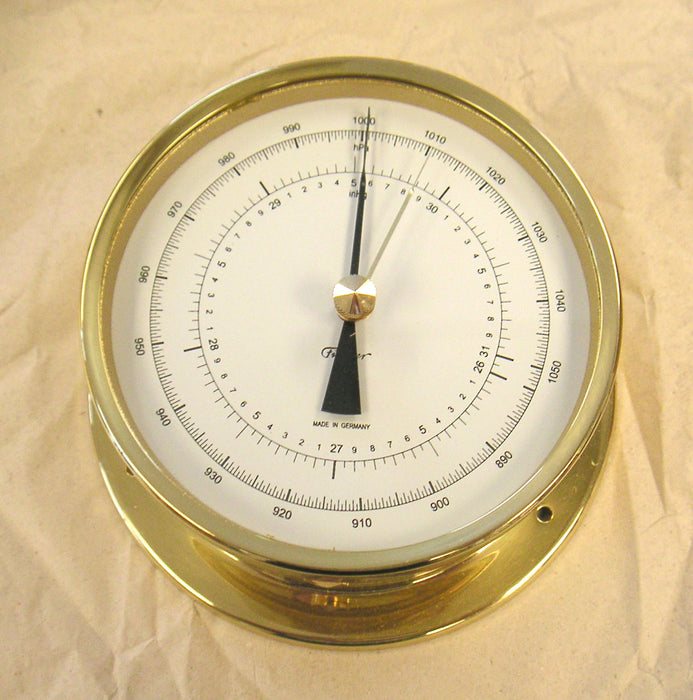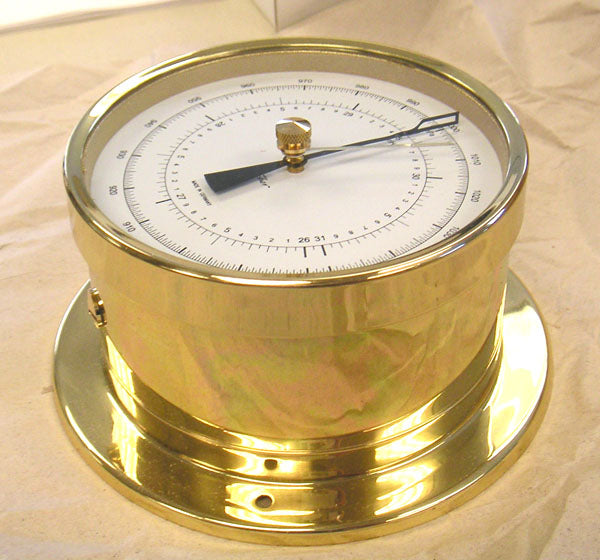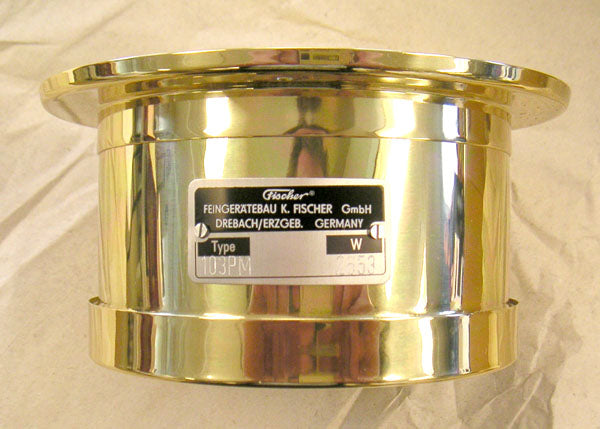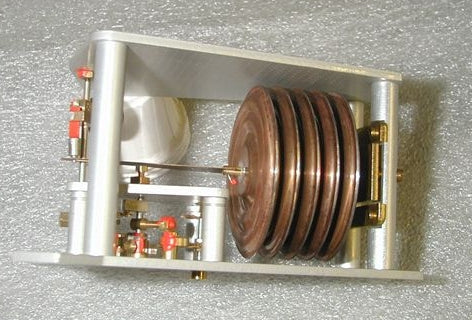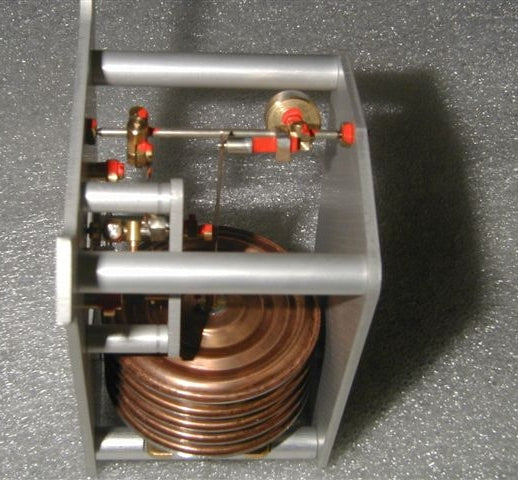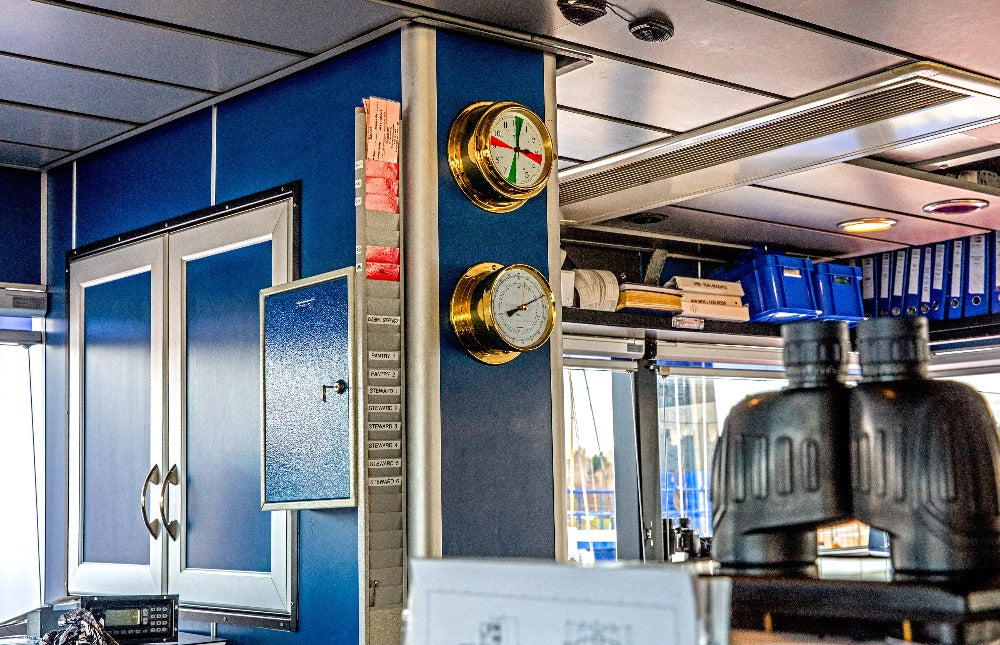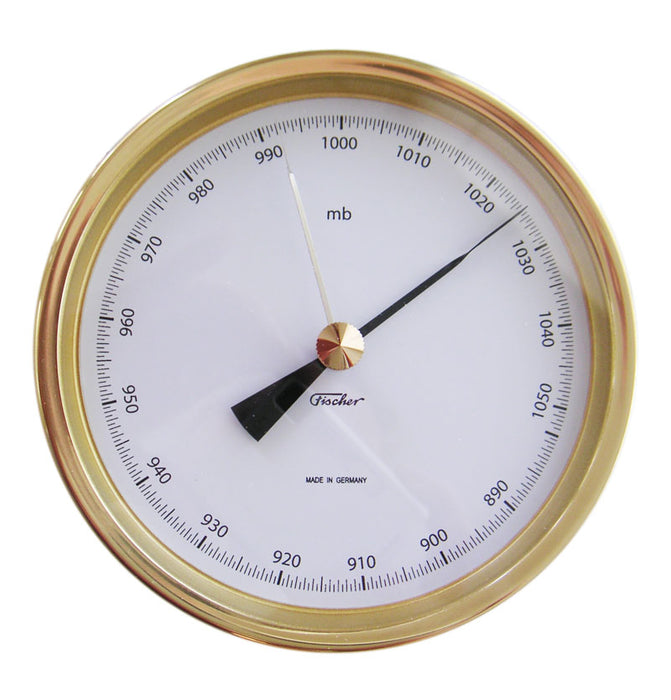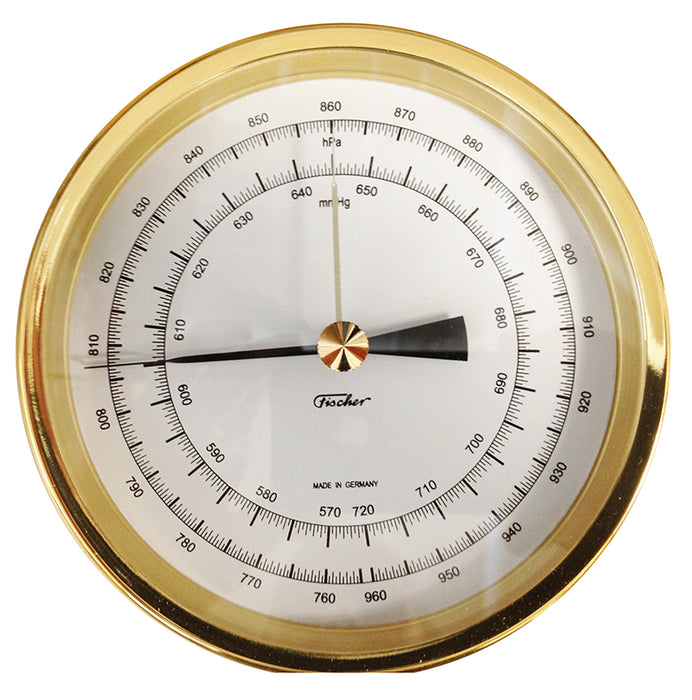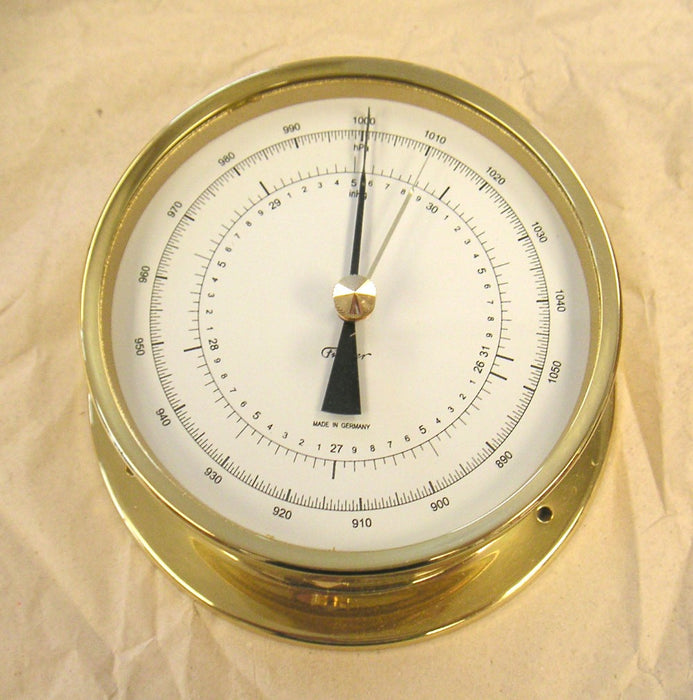
Fischer USA Series Precision Aneroid Barometer
✔FREE Domestic Shipping Orders $99+
✔Live Expert Customer Service
✔Best Price Guarantee
✔Easy 30-Day Returns
Fischer USA Series Precision Aneroid Barometer
# (Please note the is a 12 week delay on shipping this product)
Precision aneroid barometers are used for measuring absolute atmospheric pressure. Because of the excellent instrument properties, an aneroid barometer is indispensable for meteorology, ocean navigation, industry, and research.
The self-stabilized set of five aneroid capsules used in our precision aneroid barometers is made of a corrosion-proof copper-beryllium-alloy. This alloy has been well established for measuring atmospheric pressure for many years because of its remarkable elastic properties. The aneroid capsules are nearly free of age-hardening, hysteresis and elastic after-effects.
The influence of temperature on the set of aneroid capsules and the transmission system is compensated by a bimetal arm over the whole measuring range and for temperatures between -30 to +40 °C (-22 to 104 °F). The motion of the aneroid capsule is transmitted to the axle of the pointer by driving a segment and wheel with an excellent fine finish gearing. All bearings also have an excellent fine finish. The Instruments have only a bare minimum of idle friction because of the advantageous shape of the levers and bearings.
To most experts, this is one of the highest quality aneroid barometers in the world. It has been tested at sea for over 70 years and used by Navies and Weather Services around the world. The double-needle design removes parallax errors in reading.
To access the set screw:
The bottom of the instrument has a large plug. Use a wide screwdriver to remove this plug to reveal the small screw that sets the instrument as needed. You will find it has a very smooth, positive motion, so you can easily set the instrument to within a fraction of a MB, which is quite contrary to what is observed in lesser instruments.
The new dials showing both millibars (mb) and inches of mercury have been custom made for American and British users on land and sea. The mb (same as hectoPascals) dial is the international standard for maritime applications.
A certificate of accuracy is provided with each instrument. Each has a unique serial number on a metal plate on the top of the instrument.
The instruments are available worldwide from the dealers of fine instruments.
Specifications
Model PAB103
Accuracy: ± 0.7 mb (± 0.02 inHg)
Graduation: 0.5 mb and 0.01 inHg
Dial: flat white finish; diameter 5.1"
Units on dial: mb and inches of mercury
Housing Diameter: 6.5"
Weight: 1.6 pounds
Measuring Range: 890 to 1050 mb = 26.30" to 31.00"
For use at elevations below 2,600 ft.
European models show hPa and mm.
NOTICE! These precision instruments are intended to read accurate station pressure at the site of the barometer. This pressure will always be lower than the sea level pressure that is reported in media and official sources. The offset is a fixed value depending on the elevation. It can be determined for your location at www.starpath.com/barometers.
The adjustment screw on the device is for correcting minor station-pressure drifts of a mb or so over periods of many months. It should not be used to attempt to set the device to match sea level pressure.
The barometer remains the most important tool for evaluating and predicting the weather. This book explains why knowing accurate values of the atmospheric pressure can improve this process and benefit all applications. Ways to evaluate and calibrate aneroid and electronic barometers using readily available data by Internet or telephone are clearly described. Tactical applications to marine navigation are covered. The book also includes worldwide average monthly pressures and their standard deviations
INCLUDED FREE
The Barometer Handbook
by David Burch
ISBN 9780914025122
An in-depth look at barometers and applications of barometric pressure

With the exception of trained meteorological crews, barometers in the past were used at sea primarily to learn if the pressure was going up or down, and whether it was doing this rapidly or slowly. And from this we made an educated guess of a likely consequence, usually in conjunction with other observations. Outside of professional marine use, little effort was made to know the true pressure for several reasons. We did not know what to do with it if we had it, and more often we could not get it if we wanted it, because most barometers were not calibrated.
This has changed. We now have many valuable applications of accurate pressure, and we also have affordable ways to get it, and we have convenient ways to prove our instruments work properly.
The main goal of this book is to show how all this comes about and to give more insight into this fascinating, venerable instrument that has been with us for 150 years. Another goal is to introduce users to the new breed of electronic devices that are in the process of revolutionizing how we do weather at sea. We also re-introduce mariners to several classic aneroid instruments that are highly accurate and tested at sea for over 70 years, and why we benefit from having both a calibrated aneroid and an electronic barometer on board.
A good barometer is a key to good weather work. This book explains how to evaluate a barometer and how to carry out a simple calibration using convenient online resources. How to use accurate pressure in marine navigation is also explained with practical examples.
Also included are monthly mean sea level pressures worldwide, including the standard deviations of each. Samples can be seen below. Once we know how to get accurate pressure, there is much value to this type of statistical data, especially when sailing in the tropics.


